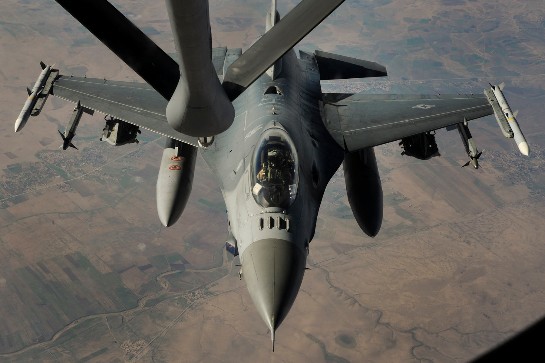 Weapons alone won't win the fight against Daesh
Weapons alone won't win the fight against Daesh
What’s in a Name? ISIL being labeled Daesh
Check off another name on the list of officials, states, and agencies which refuse to grant ISIL its self-appointed label of being the “Islamic State.” Business Insider has noted that LTG James Terry, in command of Operation Inherent Resolve, is using the term “Daesh” to refer to ISIL. Using the term since at least December, Terry represents a continuing international trend of using the term in place of ISIL/ISIS or other acronyms.
“Daesh” is derived from a rough acronym of ISIL’s original Arabic name, transliterated into English: al-Dawla al-Islamiya fi al-Iraq wa al-Sham. It is sometimes seen spelled as DAASH, DA’ISH, or variations thereof, and leaves out the reference to Islam.
Previously, the French Government declared it would use Daesh, and Secretary Kerry has also joined the ranks of those using the term. Talks that I have heard, given by members of State Department’s Center for Strategic Counterterrorism Communications, have used Daesh as well. ASP Board Member Admiral William “Fox” Fallon, used Daesh in his testimony to the Senate earlier today.
Within the region, efforts to delegitimize ISIL’s self-branding have been growing. Last year in Egypt, the Grand Mufti committed to referring to ISIL as “Al-Qaeda Separatists in Iraq and Syria.” Numerous other prominent Muslim religious authorities and scholars, like Sheik Abdullah bin Bayyah in Saudi Arabia, are continuing to raise their voices against the extremist group. The Daily Star in Lebanon has noted that a variation of Daesh has even become a recognized adjective.
So what’s the point of this name-calling? As noted by Zeba Khan in the Boston Globe:
… “Daesh” can also be understood as a play on words — and an insult. Depending on how it is conjugated in Arabic, it can mean anything from “to trample down and crush” to “a bigot who imposes his view on others.”
Though the U.S. Government should not be involved in debating the meaning of any religion, using “Daesh” accomplishes several things:
- It delegitimizes ISIL’s efforts to brand itself as both “Islamic” and a “State,” key elements to its recruiting strategy.
- It allows the U.S. to empower a regionally-borne rejection of a terror group’s appropriation of Islam, instead of attempting to instill its own values.
- It adopts language being used in the region, instead of attempting to force a rebranding.
- It overcomes the various terms and acronyms that cause confusion along the dividing lines of different languages, allowing for more united world-wide anti-Daesh rhetoric.
- It helps in the establishment of an anti-extremist narrative.
But when it comes to name calling, Daesh also has the advantage of being similar to English words, as #daeshbags (i.e. douchebags) has become a popular hashtag on Twitter.
While some acknowledge that using the term “Daesh” may have little effect overall, the only real downside to using “Daesh” may come in the form of punishment the extremist group enforces against those who use it in their controlled areas. Those punishments, however, are just one of many reasons that justify using “Daesh” and reclaiming the narrative in the strategic propaganda war.






[…] What’s in a Name? ISIL being labeled Daesh […]
[…] — not the Arabian Peninsula. It is the new epicenter of energy in the 21st century.” What’s in a Name? ISIL being labeled Daesh Matthew Wallin Check off another name on the list of officials, states, and agencies which refuse […]
[…] Global Challenges and U.S. National Security Strategy Paul Hamill Key Quotes from the Testimony before Senate Armed Services Committee, 27 January 2015 What’s in a Name? ISIL being labeled Daesh […]
That’s a smart way of thiiknng about it.